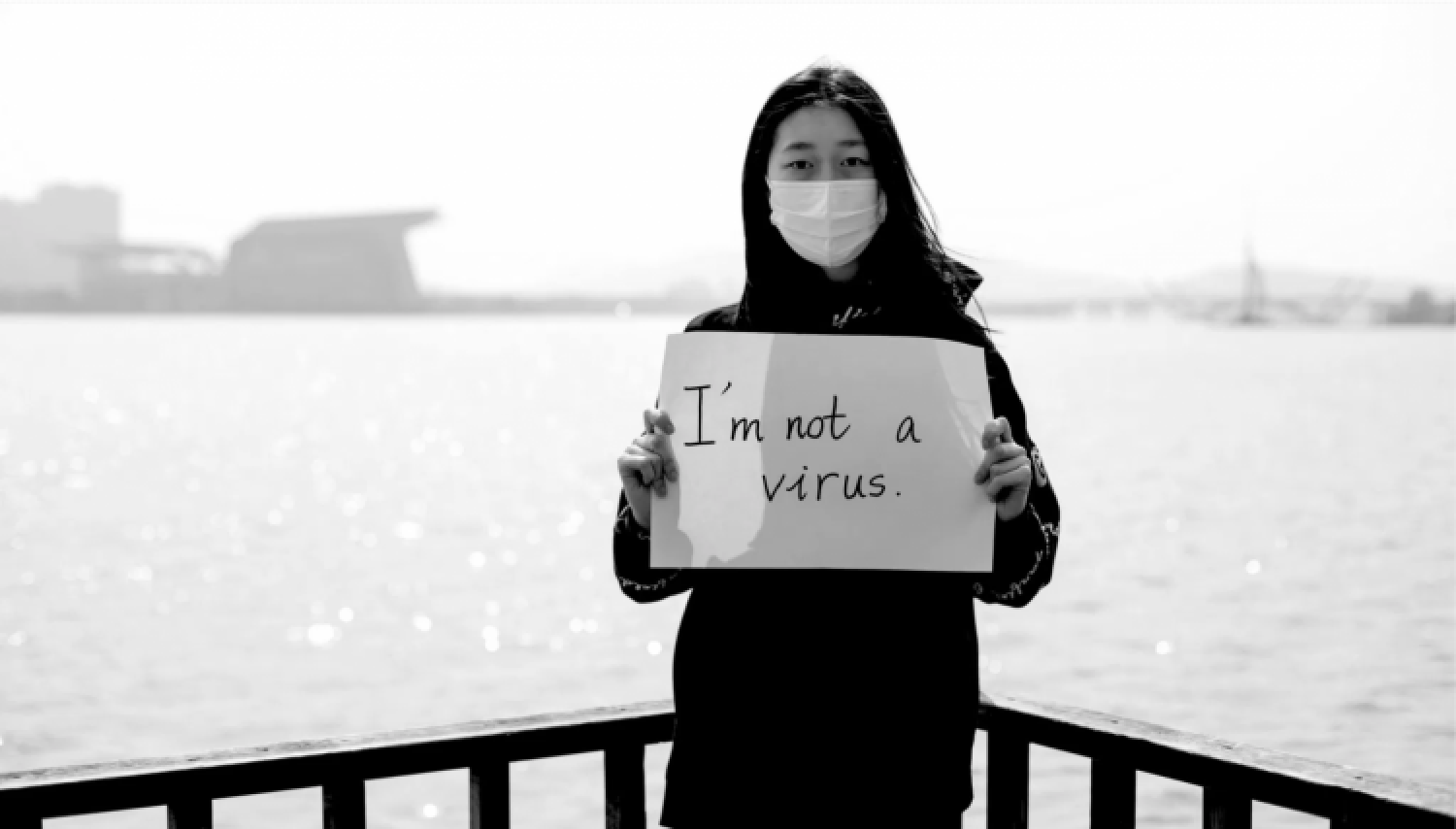Fatigue

Image taken from “Racism in the Time of COVID-19” on the webpage of Interdisciplinary Association for Population Health Science
Fatigue
June 2, 2020
I am tired. This is probably a sentiment shared by everyone reading this Pandemic Post. But there’s an added layer for me (and perhaps for you as well): I’m fatigued by racism. Truthfully, I’m always fatigued by racism. I’m also enraged, frustrated, and heartbroken by racism. But the kind of racism that is rearing its hydra head means battling it on multiple fronts all at once, which is definitely fatiguing.
The racist hydra head I’ve been most intimately familiar with since COVID-19 gained full force in the US is the rise of anti-Asian racism. In the span of two months I’ve participated in 16 interviews, podcasts, and Zoom webinars about anti-Asian racism and COVID-19, largely due to a powerpoint slide deck I created and that CU Boulder Arts & Science Magazine generously turned into a sharable pdf on their webpage. [If anyone would like a copy of the slide deck, fill out this google form and I’ll email a copy to you]. I could and probably should say no to some of these requests, but talking about race and racism is perversely something I enjoy doing—or perhaps “enjoy” isn’t quite the right word ... I feel called to talk about these issues because what I want most in the world is an end to racism—systemic and institutional racism.
If you aren’t certain how racism is connected to COVID-19, please do click on the link for the sharable pdf/webpage about anti-Asian racism and COVID-19, though very obviously it’s not just Asians in the US or globally who are feeling the sting of racism acutely and keenly. COVID-19 has exposed the great health disparities in the Navajo nation, among Latinx farm laborers, and in Black communities in Chicago and St. Louis. The image that opens this post is taken from an article talking about structural racism being exacerbated by COVID-19. I know I’ve seen the phrase “We’re all in this together” being shared widely, but the truth is, the “we” in that phrase doesn’t include everyone. Or in an analogy I’ve also been seeing, we may all be on the ocean experiencing the same storm squall, but some of us are on a luxury cruiseboat, others of us are on an aircraft carrier, while others are in rowboats or just swimming with barely a life jacket on. In other words, we are not all experiencing the pandemic in the same way.
As I write this, the US has gone through nearly a week of nationwide protests sparked by the murder of George Floyd—but it’s not just Floyd or Tony McDade, Breonna Taylor or Ahmaud Arbery. It’s not even Michael Brown, Philando Castile, Oscar Grant, Sandra Bland, Eric Garner or the countless Black people in the US murdered by police or by militarized citizen vigilantes. The protests, the riots, the anger – this is about centuries of Black people in the US not being recognized for who they are: fully enfranchised human beings. Words fail me to continue writing about the protests—and quite frankly, you don’t need me to be writing about anti-Black racism. There are so many activists and scholars you can learn from if you are so inclined—to start, you can check out these resources on this google doc—it’s designed for White people, but truthfully I think all of us, regardless of our ethnic or racial identities, would benefit from these resources and readings.
Even though I’m fatigued I don’t want to end on a note of exhaustion—because I am, at heart, a glass-half-full kind of gal and because, at my core, I am an anti-racism educator. So I’ll end by sharing with you what I share in the webinars I’ve been doing. Which is that all of you reading this can also be anti-racism educators. All you need is the will and desire to be an anti-racism ally and educator. Then you have to do the work—to read about race and racism and educate yourself about White supremacy, intersectional oppression, and systemic inequity. Then you have to talk about it – if you’re new to this, talk about it with people you feel safe with, but it’s important to stretch yourself and go beyond your comfort zone. And when you get comfortable reading, learning, and talking, it’s time to act—to take a bystander training, to volunteer for a social justice organization, and to do whatever you can to be an anti-racism activist, educator, and ally. It’s tiring work—it’s fatiguing—but it’s definitely work that’s not just worth doing but that must be done.
Jennifer Ho
Director, Center for Humanities & the Arts
Professor, Ethnic Studies
Jennifer.Ho@colorado.edu


